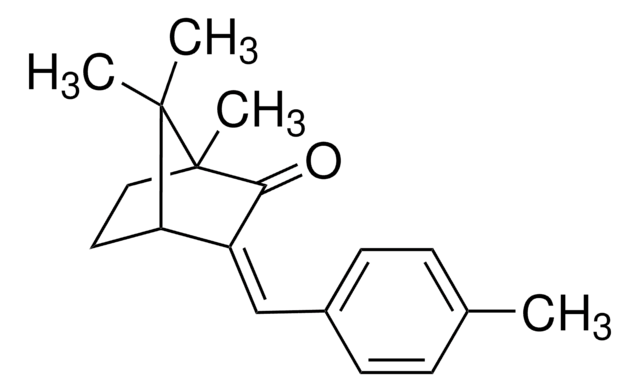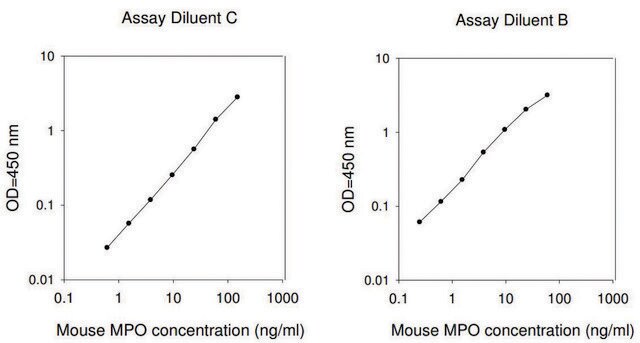MABF2247
Anti-ISG15 Antibody, clone 3C2
동의어(들):
IP17, Interferon-induced 15 kDa protein, Interferon-induced 17 kDa protein, Ubiquitin cross-reactive protein, Ubiquitin-like protein ISG15
로그인조직 및 계약 가격 보기
모든 사진(1)
About This Item
UNSPSC 코드:
12352203
NACRES:
NA.41
클론:
3C2, monoclonal
application:
WB
종 반응성:
mouse
기술:
western blot: suitable
citations:
추천 제품
생물학적 소스
hamster
Quality Level
항체 형태
purified antibody
항체 생산 유형
primary antibodies
클론
3C2, monoclonal
분자량
calculated mol wt 17.9 kDa
observed mol wt ~16 kDa
정제법
using protein G
종 반응성
mouse
포장
antibody small pack of 100
기술
western blot: suitable
동형
IgG
에피토프 서열
Unknown
단백질 ID 수납 번호
UniProt 수납 번호
저장 온도
2-8°C
유전자 정보
mouse ... Isg15(100038882)
특이성
Clone 3C2 is an Armenian Hamster monoclonal antibody that detects Ubiquitin-like protein ISG15.
면역원
His-tagged full-length recombinant mouse Ubiquitin-like protein ISG15.
애플리케이션
Quality Control Testing
Isotype testing: Identity confirmation by isotyping test.
Isotyping Analysis: The identity of this monoclonal antibody is confirmed by isotyping test to be Armenian hamster IgG.
Tested Applications
Western Blotting Analysis: A 1:250 dilution from a representative lot detected ISG15 in primary mouse embryonic fibroblasts infected with Chikungunya virus.
Western Blotting Analysis: A representative lot detected ISG15 in Western Blotting applications (Lenschow, D.J., et al. (2005). J Virol. 79(22):13974-83; Lenschow, D.J., et al. (2007). Proc Natl Acad Sci USA. 104(4):1371-6; Fan, J-B., et al. (2015). Sci Rep. 5:12704).
Note: Actual optimal working dilutions must be determined by end user as specimens, and experimental conditions may vary with the end user.
Isotype testing: Identity confirmation by isotyping test.
Isotyping Analysis: The identity of this monoclonal antibody is confirmed by isotyping test to be Armenian hamster IgG.
Tested Applications
Western Blotting Analysis: A 1:250 dilution from a representative lot detected ISG15 in primary mouse embryonic fibroblasts infected with Chikungunya virus.
Western Blotting Analysis: A representative lot detected ISG15 in Western Blotting applications (Lenschow, D.J., et al. (2005). J Virol. 79(22):13974-83; Lenschow, D.J., et al. (2007). Proc Natl Acad Sci USA. 104(4):1371-6; Fan, J-B., et al. (2015). Sci Rep. 5:12704).
Note: Actual optimal working dilutions must be determined by end user as specimens, and experimental conditions may vary with the end user.
표적 설명
Ubiquitin-like protein ISG15 (UniProt: Q64339; also known as Interferon-induced 15 kDa protein, Interferon-induced 17 kDa protein, IP17, Ubiquitin cross-reactive protein) is encoded by the Isg15 (also known as G1p2, Ucrp) gene (Gene ID: 100038882) in murine species. ISG15 is a disulfide-linked homodimeric, interferon-induced protein that plays a key role in host antiviral response. It is reported to exist in three distinct states: free form, released into the extracellular space, and as conjugated to target proteins. It contains two ubiquitin-like domains (aa 2-76 and 77-155) that are essential for its efficient conjugation to cellular proteins. Ubiquitin-like 2 domain is essential for the first two steps allowing the linking of ISG15 to the E1 and E2 enzymes while Ubiquitin-like 1 domain is essential for the E3-mediated transfer of ISG15 from the E2 to the lysine residues of the target protein. It also requires its C-terminal LRLRGG motif to form intracellular conjugates. ISG15 plays key role in the innate immune response to viral infection either via its conjugation to a target protein (ISGylation) or via its action as a free or unconjugated protein. ISGlylation is reported to involves a cascade of enzymatic reactions involving E1, E2, and E3 enzymes that catalyze the conjugation of ISG15 to a lysine residue in the target protein. Some of the target proteins of ISG15 include JAK1, ERK1, ERK2, STAT5A, TRIM25, and globin. The secreted form is also known to induce natural killer cell proliferation, act as a chemotactic factor for neutrophils, and act as a IFN -inducing cytokine. The secreted form acts through the integrin ITGAL/ITGB2 receptor to initiate activation of SRC family tyrosine kinases including LYN, HCK and FGR that leads to secretion of IFN and IL-10. S-nitrosylation of ISG15 can decrease its dimerization, thereby increasing the availability as well as the solubility of monomeric ISG15 for its conjugation to cellular proteins. (Ref.: Perng, Y-C., and Lenschow, DJ. (2018). Nat. Rev. Microbiol. 16(7); 423-439; Lenschow, DJ., et al. (2007). Proc. Natl. Acad. Sci, USA. 104(4); 1371-1376; Lenschow, DJ., et al. (2005). J. Virol. 79(22); 13974-13983).
물리적 형태
Purified Armenian hamster monoclonal antibody IgG in buffer containing 0.1 M Tris-Glycine (pH 7.4), 150 mM NaCl with 0.05% sodium azide.
재구성
0.5 mg/mL. Please refer to guidance on suggested starting dilutions and/or titers per application and sample type.
저장 및 안정성
Recommended storage: +2°C to +8°C.
기타 정보
Concentration: Please refer to the Certificate of Analysis for the lot-specific concentration.
면책조항
Unless otherwise stated in our catalog or other company documentation accompanying the product(s), our products are intended for research use only and are not to be used for any other purpose, which includes but is not limited to, unauthorized commercial uses, in vitro diagnostic uses, ex vivo or in vivo therapeutic uses or any type of consumption or application to humans or animals.
적합한 제품을 찾을 수 없으신가요?
당사의 제품 선택기 도구.을(를) 시도해 보세요.
Storage Class Code
12 - Non Combustible Liquids
WGK
WGK 1
Flash Point (°F)
Not applicable
Flash Point (°C)
Not applicable
시험 성적서(COA)
제품의 로트/배치 번호를 입력하여 시험 성적서(COA)을 검색하십시오. 로트 및 배치 번호는 제품 라벨에 있는 ‘로트’ 또는 ‘배치’라는 용어 뒤에서 찾을 수 있습니다.
자사의 과학자팀은 생명 과학, 재료 과학, 화학 합성, 크로마토그래피, 분석 및 기타 많은 영역을 포함한 모든 과학 분야에 경험이 있습니다..
고객지원팀으로 연락바랍니다.
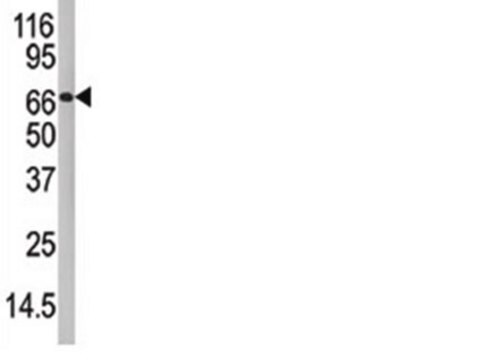
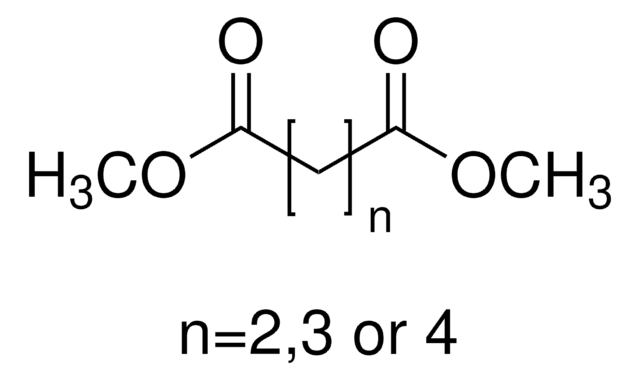

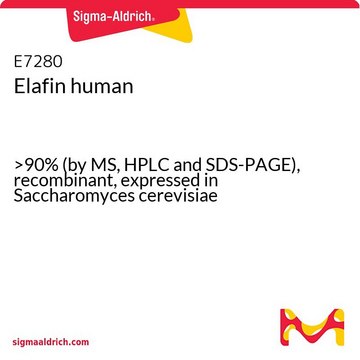
![2,2′-Methylenebis[(4S)-4-tert-butyl-2-oxazoline] 99%](/deepweb/assets/sigmaaldrich/product/structures/316/483/d76fb8bf-5216-440e-a409-771970cad43d/640/d76fb8bf-5216-440e-a409-771970cad43d.png)
